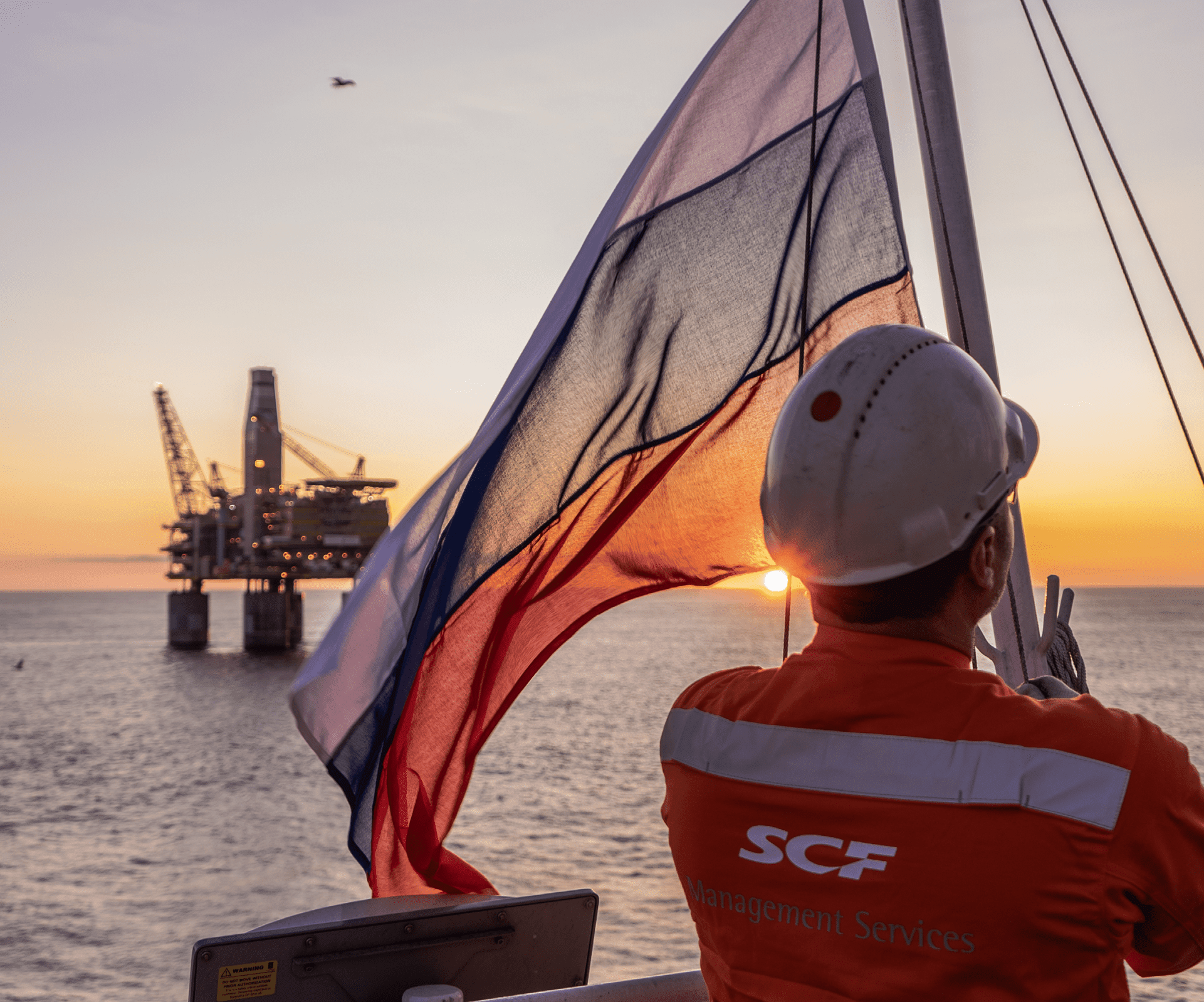Professional development
A shipping company’s performance largely depends on the skills of the seafarers entrusted with the navigation of high-tech vessels. Therefore, Sovcomflot actively participates in professional development of its employees.
The Group regularly organises seminars for fleet officers to exchange professional experience. In the reporting year 321 fleet officers participated in these seminars.

Cooperation with maritime educational institutions
In order to attract young skilled specialists, Sovcomflot Group fosters cooperation with Russian maritime educational institutions.
The previously concluded cooperation agreements with the three main maritime universities in the country: Admiral Makarov State University of Maritime and Inland Shipping (Saint Petersburg), Admiral Ushakov Maritime State University (Novorossiysk) and Admiral Nevelskoy Maritime State University (Vladivostok) continued to operate in 2020.
Sovcomflot Group participates in the preparation and training of future specialists, provides support for teaching staff, helps organise navigation practice for cadets and internships for teachers on an annual basis, and takes part in renewing and modernising the material and technical base of universities.
As part of agreements on mutually beneficial collaboration with universities, Sovcomflot continues allocating funds to educational institutions, primarily for equipping classrooms and purchasing additional teaching aids, and supporting post-graduate students and young teachers.
| Type of cooperation | Nature of cooperation | Results of practical training |
|---|---|---|
| Navigation practice for cadets | Cadets and trainees from maritime universities receive hands-on training at sea on board the Group’s vessels. HR Department specialists recruit the most promising graduates based on the results of pre-graduation practical training, the average degree score, and the characteristics of the academic institution. | 123 cadets of maritime universities and 10 cadets of secondary vocational training institutions received practical training on board the SCF vessels in 2020 |
| Targeted training of fleet specialists | SCF Group implements targeted training programmes for young fleet officers in collaboration with leading Russian maritime universities. The group of SCF cadets at the Admiral Nevelskoy Maritime State University in 2020 included 20 people: 8 navigators, 8 marine engineers and 4 electrical officers. A similar group of 20 people was formed from third- and fourth-year cadets at the Admiral Makarov State University of Maritime and Inland Shipping. | In 2020 all cadets from dedicated groups received practical training on SCF Group vessels. 82 graduates of higher and secondary educational institutions were employed by SCF Group. |
| As part of a joint project between SCF Group and the Admiral Ushakov Maritime State University, a targeted enrolment programme for cadets within the quota for training funded from the federal budget was operating at the University from 2014 to 2020. | In 2020 all cadets from the targeted enrolment groups who complied with the contract terms were hired into officer positions on SCF ships. |
Sovcomflot personnel training system
Sovcomflot Group has created an in-house training system for fleet personnel meeting the highest international standards.
This system includes two in-house training centres:
- The Sovcomflot Training Centre in St. Petersburg, which provides training covering the whole range of maritime operations in the Arctic, including training on the skills needed for servicing oil platforms, navigation in northern latitudes, navigation in ice – both independently and accompanied by icebreakers, etc. The centre has been certified by classification society Russian Maritime Register of Shipping (RS)
to ISO 9001:2015 (“Quality Management”). - The Novoship Training Centre in Novorossiysk, which has been operational for more than 15 years and today is one of Russia’s leading maritime educational institutions. The training centre cooperates with 15 companies from the southern region of Russia on training for seagoing personnel. The centre has been certified by Russian Maritime Register of Shipping
to ISO 9001:2015 (“Quality Management”) and pursuant to the International Convention on Standards of Training, Certification, and Watchstanding for Seafarers, as amended (“System of Quality Standards”). According to the latest estimate by auditors, the Novoship Training Centre occupies 5% of the domestic market for specialised training.
Sovcomflot stimulates professional development among its staff and encourages employees to pursue additional education in order to gain in-depth knowledge of modern technologies in fleet management. SCF’s engineering staff have very high scientific capabilities: currently, 15 seafarers, who have completed post-graduate studies and received the title of Candidate of Technical Sciences or are preparing to defend their theses, work in the Group’s fleet.
The Sovcomflot Training Centre in St. Petersburg became the first in Russia to provide training for crews of ships subject to the IGF Code (International Code of Safety for Ship Using Gases or Other Low-flashpoint Fuels) under a programme developed by this centre by taking into account the experience in operating Aframax tankers of the ‘Green Funnel’ series.